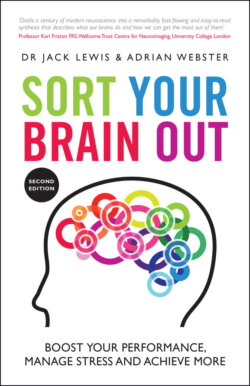Читать книгу Sort Your Brain Out - Джек Льюис, Адриан Вебстер - Страница 28
Will technology ruin our brains?
ОглавлениеTo date, most of the available evidence on whether digital technology is good or bad for your brain is still in its early stages and is a bit of a mixed bag. Studies are being conducted at this very moment in an attempt to provide hard data to establish whether our obsessive use of gadgets is having unintended negative consequences. The trouble is that, with lightning‐fast changes in technology, it's a bit of a moving target. Trying to study the impact of any given type of technology is hampered by the fact that it often changes dramatically from one year to the next, as does how people actually use it. This makes it very difficult to work out exactly what causes the various changes in behaviour and brain structure. That said, a few studies have already hit the academic press from which we can start to forecast the likely future findings.
The truth is, technology in and of itself is neither good nor bad. The problems generally arise when people overuse it. Your malleable brain, as you are now more than aware, will accommodate the demands of any environment, whether it is physical or virtual in nature. The ongoing adjustments to the demands of the digital environment happen, for better or for worse, whether you like it or not, for as long as you continue to engage regularly, intensively and consistently with any given technology.
In addition to this, as we know, old habits – once formed through repetition – die hard. For instance, eating habits adopted in childhood (when metabolism is relatively high) almost always continue into adulthood (when metabolism inevitably slows down). In the absence of regular intensive exercise to burn through it, the consequent excess of calories leads to an expanding waistline – a scenario familiar to all but the most disciplined of eaters.
The same principle can be applied to technology. Once a person develops a reliance on technology, including an expectation of regular messages and online updates, any interruption to the flow of communication can lead to panic. They might find themselves throwing a hissy fit when unable to get a connection or, worse still, fall into a spiral of depression when a whole day passes by without hearing the reassuring ping of messages or seeing likes on their social media posts.
